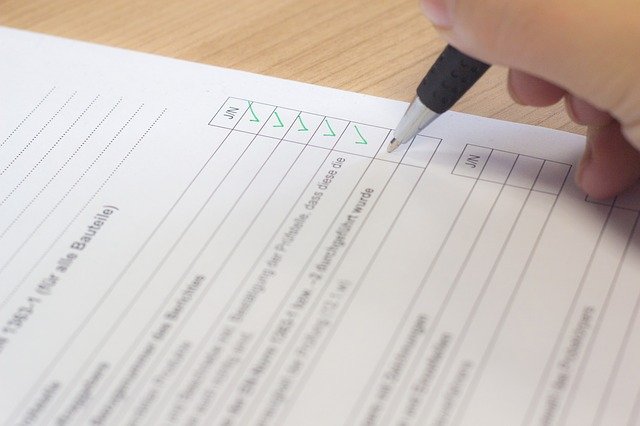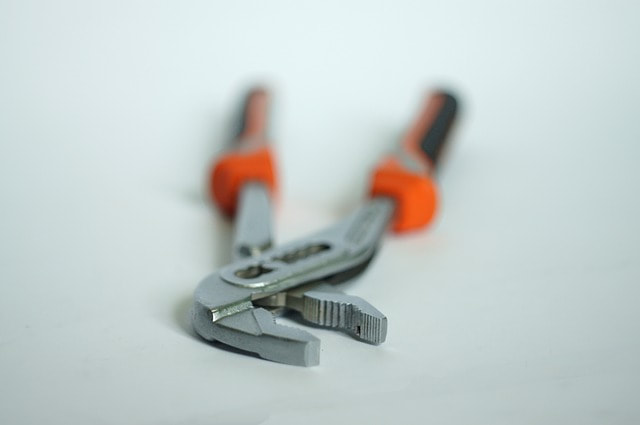|
The Texas Real Estate Commission recently adopted changes to the real estate inspector Standards of Practice (SOPs) at its August 9, 2021 meeting based on recommendations from the Texas Real Estate Inspector Committee. These changes are not effective until February 1, 2022. This six-month period will provide inspectors the time necessary to familiarize themselves with the updated SOPs prior to their mandatory use on February 1, 2022.
PLEASE NOTE: because these changes are not effective until February 1, 2022 inspectors must continue to use the current SOPs until that date.TREC staff is in the process of revising the pocket edition of the SOPs to reflect these changes, which will be available by the effective date of the rules. Additional information on how to obtain your copy will be provided as that effective date approaches. The Inspection Report Form has also been updated to reflect those changes and was adopted under the new form number REI 7-6. In addition, the preamble of the new REI 7-6 has been revised to be more straightforward, to provide greater clarity to an inspector’s client regarding an inspector’s duties while performing an inspection, and to better explain what the client should expect from the inspection and inspection report. Finally, the related rule was revised to clarify how the REI 7-6 is to be provided to the client when an inspector uses software or another type of electronic method to produce an inspection report. The REI 7-6 can be used by real estate inspectors on a voluntary basis as of September 1, 2021, but is required for all real estate inspections performed in Texas as of February 1, 2022. If you have any additional questions, please email TREC General Counsel at [email protected]. A new home inspection, also known as a construction or phase inspection, is an invaluable service for anyone who is looking to have a reliable and non-biased professional opinion regarding the quality and installation practices being utilized on their new home during the building process. The new home construction process can be an unexpectedly overwhelming process for anyone. Having a professional home inspector on call to help guide you through the home building process will absolutely bring value to your future purchase.
______________________________________________________________________ Phase Inspection Process There are three opportunities available during the building cycle that are recommended to have your third-party inspector evaluate and report on the workmanship and construction of your new home. The standard 3 phase inspection process is utilized to ensure that major construction defects within your home are not covered up. There is a market for these types of inspections for a reason. Additionally, most high-quality home builders fully welcome a third-party inspection. The new construction phase inspection is conducted at three separate times; 1. The first inspection should be conducted prior to your concrete being poured (Pre-pour Inspection) 2. The second inspection takes place prior to the interior walls and insulation being installed (Framing Inspection) 3. The final inspection takes place after the home is complete, usually around the time of your intitial “Blue tape” walk-through (Final Inspection). Pre-pour Foundation Inspection There is ample value in having your home's foundation inspected prior to the pour day. If you are considering having your foundation inspected there are a few things you should plan for. Failure to install your home’s foundation in accordance with the engineered plans can have a devastating impact on the integrity of your home’s foundation. Furthermore, there are numerous workmanship defects that are present on nearly every foundation that can impact the visible appearance as well as the bearing capacity of the foundation. Once the concrete is poured, the opportunity to have your foundation inspected is gone. When to Schedule the Foundation Inspection It takes time to coordinate with concrete companies for the required concrete for your foundation. That means, your builder knows a few days in advance when they plan of pouring. The best time for the pre-pour inspection is typically two days prior to the actual pour day. This will help ensure that the foundation is ready to inspect, as well as give the builder sufficient enough time to make any and all needed corrections, or postpone the pour day. Additionally, this will allow you some time to re-inspect the repairs prior to pour day. Another way to get an idea on the intended pour day is to ask the builder when their in-house inspector is scheduled to review the foundation. If we know when the builder’s inspector will arrive, we can usually schedule the inspection around that date, as the forms and reinforcements are typically complete at that time. Upon completion of the on-site inspection, Nu Element Home Inspection LLC will return to the office and begin constructing your digital report. The report will be comprised of digital photographs and locations of each defect, as well as the relevant references for issues discovered during the inspection. This helps ensure that once your builder has the report, the required corrections are implemented. 3 Common Foundation Installation Problems There is always a chance that your home’s foundation will have a major issue. Though not the norm, there have been occasions where a home’s foundation was poured using the wrong design plans. Below is a list of the most commonly found problems that are present on most of our pre-pour foundation inspections. 1. The installation of a Post-tensioned cable that can be over-spanned and under supported. The plans for the foundation will likely call for #3 rebar at 48 inches on center. When tendons are not properly supported, the weight of the concrete, as well as the concrete workers, will drive the tendon into the ground, severely limiting the amount of concrete coverage and potential bearing integrity of the exterior footers. If your inspector is familiar with reading the foundation plans while on site, documenting and addressing these issues become much more efficient. 2. Another common problem is undersized reinforcing bar. It is important for the integrity of the foundation, and compliance with the designed plans, that all corners, re-entrant walls, and other designed areas have the appropriate amount and size of rebar. Another important component is the support and fastening of the rebar within your homes foundation. Improperly sized rebar, when located at the corners of a post-tensioned foundation, can increase the probability of corner-pops. 3. Another common issue with the installation of your home’s foundation is standing water and poor grading and drainage. Grading is typically done by builders after the foundation has been poured, and sometimes later. This directs any recent rainfall into the foundation beams. This will significantly reduce the strength of the concrete when it mixes with the water, and should be avoided. Framing Inspection The next phase of the inspection process is typically called the framing inspection, or pre-cover inspection. Once your home’s roofing material, exterior cladding, and windows have been installed, your home will be ready for the interior sheetrock and insulation to begin. Because the sheetrock and insulation cover some of the critical materials, like window flashing, electrical wiring, and your home’s framing components, having your third-party inspector evaluate and report on the quality of work is paramount. Once the sheetrock goes up it is too late. Many defects can lay dormant until well after the home warranty has expired, leaving the home owner responsible for any needed repairs. When to Schedule the Framing Inspection The best time to schedule the framing inspection will typically coincide with your builder’s framing walk-through. This is the portion of the building cycle where builders try and ensure that all of the agreed upon design criteria has been properly built into the home, and that your questions and concerns have been met. This also happens to be in-line with the building officials required inspection, and when your builder, if applicable, will have their own inspector review the home. Once the builder’s inspector has finished their inspection, and the defects that were identified have been corrected, the best window of opportunity for the framing inspection presents itself. When we are the last to inspect the property it ensures that all of the typical defects that tend to congest our report have previously been identified and corrected. This makes it much easier for you to perform your re-inspection, as their will be, in theory, fewer items to keep track of. It also allows the inspection of the recently repaired defects. 3 Common Framing Installation Problems 1. The most common issue found during the framing inspection by every builder is improper notching and boring of the interior load bearing stud walls. After the framers have completed their installation, the electrical and plumbing is installed through the home’s interior walls. During this process, over-zealous cutting of load bearing studs is conducted in order to make way for the utilities. There are requirements that must be met in order to maintain the integrity of load-bearing walls after they have been damaged. This of course goes unseen very often. 2. Another common problem is with the installation and flashing of the home’s windows and exterior penetrations. Poor flashing installation will in most cases lead to water damage to the home. Unfortunately, this can take quite some time to finally manifest itself within the home once it has been covered. This is one of the primary reasons for an inspection at this stage. 3. Installation defects in regards to the home’s water-resistive barrier and air barrier is also quite common. The water-resistive barrier and air barrier are installed in order to prevent the infiltration of water and moisture laden air into the home. When not installed properly, which is often the case, an unnecessary amount of unconditioned air can enter the home’s thermal envelope. Can a home inspection affect the sales price of that home you are about to sell? The short answer is yes, it can. But you don’t have to let it. You can achieve this when you understand what the home inspection is, why buyers want a house to be inspected, what home inspectors look for in the property, and the advantage a home inspection gives to the buyer during the home buying process. If you are reading this, chances are that you are a homeowner on the verge of selling your home and you are concerned about how much control you have over the eventual sale price of the property. Like every seller, you want to do everything to avoid events that could force you to sell the home below your desired price. And the one event that has the power to do that is the home inspection.
Regardless of whether a seller conducts a prelisting home inspection or not, most homeowners already have a fair idea of the problems that exist with their home. By being honest with buyers and letting them know about the existing problems before the home inspection, sellers help themselves in two ways. Firstly, they build trust with the buyer, and secondly, they give buyers the chance to factor in the cost of fixing the problem when making their offer. This ensures that the buyer has a fair idea of the condition of the home and the home inspection becomes a mere formality. In conclusion, the main thing buyers want to know when they conduct a home inspection is if the seller's information about their home is complete. The more you know about your home, the less power the home inspection has to lower its sales price. If you want to relieve yourself of the stress of worrying about the home inspection, take control of the situation by knowing more about your property. What is the home inspection and why do buyers have them?The home inspection is that part of the home buying process where the structures and systems of a home are meticulously examined by a professional home inspector for any flaws that the seller may have failed to disclose or is unaware of. It involves a thorough examination of all parts of the interior and exterior of the home. The two reasons that buyers want the home inspection done are trust and maximizing value. As with all financial transactions, there is mutual distrust between homebuyers and sellers. As OmniKey Realty explains, buyers are never sure when sellers are disclosing the full information about the details of a home. Therefore, the buyer seeks the opinion of a neutral third party about the actual condition of the home in order to determine its true value. Based on the outcome of the inspection - the home inspection report - the buyer can come to the following conclusions about the home: What can sellers do about this?
 Selling anything to people is hard. But when the thing you are trying to sell is a house, the level of difficulty goes into the stratosphere. Prospective homebuyer's have to cross major hurdles to reach the point where they are finally ready to buy a home. After going through all that stress, the last thing they want is to buy a home they will be unhappy with in the future. That is why most homebuyer's are typically slow to make buying decisions. The majority of them want to be sure of every aspect of a home before they commit to buying it. And even when they have agreed with the seller on price, they are still not convinced. That's why buyers conduct a home inspection before paying for a home. The inspection helps to assure the buyer that they are making the right decision in buying that particular home, explains McCaw Management in Dallas/Fort Worth. But while home inspections help buyers, they can be a problem for sellers. Because home inspections happen after a seller has agreed on the sales price with the buyer, but before the buyer pays for the home, they can be gut wrenching. The inspection can undo all that the seller has done to get to that point. That is why sellers typically view this part of the sales process with fear. However, there is a way for homeowners to minimize the uncertainty of the home inspection; they can have a pre-listing home inspection. What is a pre-listing home inspection? A pre-listing home inspection is the same as a home inspection. Its difference is in its timing and in who pays for it. Unlike the home inspection, which happens after a buyer has agreed to buy the home; the pre-listing home inspection takes place before the seller puts their home on sale. Secondly, it is paid for by the seller, not the buyer. Why would a seller add the extra cost of a pre-listing home inspection to the expense of selling their home? There are good reasons for doing this. Below we explain the good and the bad things about conducting a home inspection before you list your home. Pros of a pre-listing home inspection 1. Minimize stress As already explained, having a pre-listing home inspection can help homeowners be more confident when selling their home. Knowing that a buyer's home inspection will not reveal anything that can upset the sale can be very reassuring. 2. Price the home accurately Knowing the actual condition of their home gives sellers a more accurate basis for setting the sales price. It also offers them an edge during negotiations because their pricing is not arbitrary but based on provable facts about the home they are selling. 3. A chance to make important repairs Homeowners will usually take steps to improve their home before they put it on the market. Most sellers focus on aesthetic improvements. But conducting a pre-listing home inspection can provide vital information that helps owners make more functional repairs to the home. 4. Reduce the likelihood of re-negotiations After the home inspection, if they don't walk away, many buyers use the inspection report as a basis for renegotiating the sales price. And if they try to negotiate the price downwards, they may press the seller to do repairs before they pay for the home. A pre-listing inspection reduces the chances of this happening. 5. Give buyers more confidence During business transactions, there is mutual suspicion on the part of the buyer and seller. But when the seller can hand the buyer a copy of a home inspection report from a neutral third party, it reduces the buyer's suspicion that the seller may be hiding something. 6. Makes the estate agent's job easier Selling is easier when sellers know the true condition and actual value of what they are trying to sell. The home inspection can help the seller's real estate agent do a better job of convincing buyers. The agent can speak with greater confidence. 3 Reasons Home Inspection Companies Remain a Critical Part of a Real Estate Purchase in 202011/26/2020 If you are a home buyer considering purchasing a residence, you may be asking yourself – is hiring a home inspection company really necessary in this day and age. Times are changing, the whole real estate purchase process is evolving, and with the ease of online sites like Zillow, Redfin, Opendoor, and others, searching for a home for sale has never been easier. I can do so much research myself and know so much about a home before I even step foot into the place. So is a home inspection needed? There are 3 reasons home inspection companies remain a critical part of a real estate transaction in 2020 and beyond. Times are changing, no doubt about it. Every facet of the home purchase process is being optimized as technology advancements push the real estate industry as a whole toward solutions that benefit a more knowledgeable home buyer. So let’s explore the top trends we have noticed in our dealings with home buyers, that have highlighted the importance of a home inspection. 1. Increase in For-Sale-By-Owner and Low-Fee-Listing PropertiesTraditionally, a homeowner would find a local real estate agent to help them list their home for sale. The agent would do research on comparable sales in the neighborhood and area, help the seller establish a listing price, arrange photographers to help present the property in the listing, and then coach the seller on the best ways to prepare the home for showings. With the advancements in online listing platforms, sellers are finding that getting their homes listed for sale is a quicker and easier process than ever. Many sellers are taking the leap to list the home themselves without the help of a real estate agent. According to the National Association of Realtors statistics, FSBOs accounted for over 7% of home sales in 2017, with this percent expected to grow to over 10-12% in 2019. Other sellers may be seeking help from low-fee listing service companies that can get the home listed for a flat-fee or lower commission rate. While there are upsides to these advancements, the downside is the potential loss of a real estate professional helping guide the seller through the process of preparing their home, properly completing disclosures, and knowing what repairs may be needed to help the home sell. The results of these changes can be a home that isn’t as prepared for sale as it could be. The role of the home inspector in representing the buyer grows in importance in cases like this, more so than usual. When a seller does not take advantage of the experience of a local real estate agent in preparing their home for sale, they may not address concerns prior to listing their home for sale. And of course sellers loves their homes, so they may not clearly understand the need to repair or replace certain items prior to listing. The critical eye of a good home inspector can help discover deferred maintenance items, immediate repair concerns, and items to monitor over time. COURTESY OPENDOOR 2. The rise in iBuyer Owned ListingsThe latest trend in today’s real estate market is the rise of the iBuyer option for home sellers. This is where large real estate companies like Zillow, Redfin, Opendoor, or smaller local real estate companies will purchase your home directly instead of selling it. The pain points in selling a home can all be eliminated when a seller chooses to work with an iBuyer to purchase their home. Nobody really enjoys selling a home. Cleaning your homes, putting up with multiple showings, fixing nagging issues you have ignored, the stress of negotiating with a buyer, etc. – nobody looks forward to these items. Along comes the iBuyer, willing to make a cash offer to purchase your home and take away all this headache. Certain home sellers find this option attractive and take advantage of it. The iBuyer company now owns the home and needs to clean and prepare the home for sale. In reality, iBuyer’s are basically the new version of home-flippers. Their goal is to turn around the property and sell it for as much profit as they can with the least amount of investment possible. That isn’t to say that there isn’t real value in what these companies are providing for sellers and the market. But they may be willing to leave in place concerns present in a home, in hopes of selling without the need to repair or replace defects or maintenance concerns. Enter the home inspection company, representing a home buyer’s best interests. Home inspectors have no financial role in a home purchase, allowing them to be completely independent and unbiased in reporting on concerns observed. If you have any doubts as a home buyer looking at a home that has been through the iBuyer process, having a professional home inspector on your team to give you a fair and unbiased review of the home, can give you peace of mind and a solid understanding of the condition of the home. 3. Technology Advancements Available to Home Inspection CompaniesWhile the overall real estate market has experienced advancements, the home inspection industry has itself experienced improvements that benefit inspectors, and ultimately the buyer. Leading the way is the availability of tools and processes that were not something inspectors had years ago. Providing enhanced service offerings to buyers and their real estate agents helps to understand the complete condition of the home being purchased. Infra-red scan tools have improved in features and dropped in pricing, allowing a home inspector to carry an IR camera in their tool bag. IR scanning can reveal moisture concerns, electrical issues, insulation concerns, and leaks that may not be readily visible to the naked eye. Mold testing services that were once only available to industrial-hygienists and special labs, are now services home inspectors can offer, with fast turnaround on results, even next day in many cases. Many home inspectors are adding sewer scope inspection services to their offerings, which allow inspection of the inside of the main sewer line leaving the home, to verify the condition of this buried line. Others are adding Water-Quality-Testing, Pest-Inspections, Asbestos-Testing and other services that are above and beyond the basic home inspection standard of practice. Finally, the quality of the report produced by a home inspector has significantly improved as technology advances have found their way to this niche industry. See one of our sample reports here. Reports accessible via a website link are becoming standard, with high-resolution pictures of areas of concern, detailed write up of concerns with informational links, and the ability to share report concerns with agents and sellers to clearly communicate issues noted during the inspection. Video Player 00:00 00:06 The Times They Are a-ChangingThe only constant in life is change. The real estate industry is in the midst of broad changes that will impact how buyers and sellers interact in the sale process of a home. Overall the changes are positive and helpful, but not without growing pains. As with many changing industries, certain roles or processes get eliminated or minimized as technology advances. In the case of a real estate purchase transaction, many of the changes we are seeing only highlight the importance of a home inspection in the real estate purchase. Getting solid information on the condition of a home is critical in the decision-making and due-diligence process. By all means, use the new tools available when searching for a home. But don’t overlook the importance of hiring an independent, qualified home inspector to help you understand the home’s condition. What’s the Difference between a Home Inspection and an Appraisal?By WIN Home Inspection Twitter Facebook LinkedIn
When you’re getting ready to buy or sell a home, an appraisal and home inspection are part of the process. Since both assessments require a deeper look at your home to aid in the sales process, many first-time home buyers have difficulty differentiating between the two. However, there are some key differences between them: What is a Home Appraisal?An appraisal provides valuable information for the buyer and seller, but an appraiser’s primary mission is to protect the lender. Lenders don’t want to own overpriced properties, so appraisers take a look at a home before the lender grants final approval for a buyer’s loan. Although appraisers will take note if a house shows signs of neglect – from chipped paint to broken windows – this is not their primary focus in determining a home’s value. Instead, they’ll look at a variety of other factors, including:
What is a Home Inspection?An appraisal isn’t a substitute for a professional home inspection. While the appraiser formulates an opinion of a property’s value, the home inspection will educate the buyer about the condition of the home and its major components. The inspector will key in on the home’s existing and potential future issues, alerting buyers of any red flags or areas that need repair. This will not only help the buyer negotiate a fair purchase price, it will also give them an idea of the home’s safety and potential maintenance needs. Inspectors take a deeper look at a home’s overall condition and mechanical systems, including the state of the home’s:
By Ron WynnCreators SyndicateReal estate watcher: Seeing ‘boom’ in single-family homesCompass Vice President Mike Aubrey argues even before the coronavirus outbreak, many families were moving out of cities and into the suburbs.
Whether it's a $300,000 condo or a $4,000,000 home, stuff happens. If you're buying a piece of real estate, reserve a 10- to 20-day contingency period to do your due diligence, which includes a thorough physical inspection, termite inspection, sewer line inspection, chimney inspection and mold inspection. Even though the fees you will pay to complete all these inspections can come to $1,000 or more, it is well worth it in the long run! If the news you receive after an inspection is really bad and you are still within your contingency period, you can abandon your purchase completely and receive your full deposit back. 4 COSTS HOMEBUYERS OVERLOOK MOST OFTEN, ACCORDING TO A MILLIONAIRE BUILDER If you choose to move forward with your purchase, you can negotiate repairs with the seller, although the seller is not obligated to say OK to all, or even any, of your requests. VideoIf the deal falls apart, however, the seller is obligated by the laws of disclosure to disclose the content of your inspection to subsequent buyers and forward the inspection reports upon request. Particularly in today's robust market, you'll usually hear the seller say, "It's an old house, and it's being sold as is." I often hear buyers say, "We're paying top dollar, and we should not have to pay for deferred maintenance and urgent repairs." If the news you receive after an inspection is really bad and you are still within your contingency period, you can abandon your purchase completely and receive your full deposit back. The question then becomes "What is a code violation, a health and safety hazard or an urgently needed repair versus a cosmetic need, a typical aging system still in operative condition or a complete upgrade of no urgency?" VideoFor this you need a trained eye to read and understand your inspection reports. A good realtor will walk you through the process and help identify the most significant issues, prioritizing issues from urgent to not so significant or urgent. THE BEST TIME TO BUY YOUR SECOND HOME If you are without the assistance of a trained realtor or adviser, look first at mold, water intrusion and drainage issues, as these are the most difficult to remedy and the most expensive to fix. Water intrusion can affect foundations, walls and structure, leading to health issues and impacting resale and future property value. Next, look for dry rot in the roof, roof eaves, windows, subfloor and door jams, all of which would be noted in your termite inspection. Also, take serious note of your sewer inspection and chimney inspections. Depending on where your sewer ties into the city lines, a sewer replacement could cost $10,000 to $25,000, most often closer to $12,000. VideoCorrecting poor drainage involves diverting water away from the foundation, which might necessitate French drains and additional rain gutters. These costs totally depend on how many drains are needed and where they would tie into the city disposal. Costs might range from $8,000 to $25,000. A cracked chimney that is deemed a fire hazard will need to be replaced from the break, usually at costs averaging $10,000, more likely $15,000 in a two-story home. Hillside properties are another animal completely. They require the opinion and guidance of a qualified geologist, and perhaps even a structural engineer and a civil engineer. This is serious stuff, so do not cut corners by going to someone inexperienced. GET FOX BUSINESS ON THE GO BY CLICKING HERE Also, be savvy about an overloaded, antiquated, old-style electrical system; the modern lifestyle puts a lot more pressure on the electrical system than a toaster oven and a few floor lamps. The roof is an expensive item to be conscious of, and earthquake retrofitting is something to look at, too, if it has not been handled previously. After that, most items are of less of financial consequence but still worth being considered. Don't skimp on inspections, qualified advice and repair estimates. Pick your battles based on the significance and urgency of the repairs needed and the costs associated. Be sure your request for repairs is well written and supported with realistic cost estimates. And finally, be sure you are in the hands of a competent, qualified and caring real estate broker who will guide you through the process. Ron Wynn has been among the top 100 agents in America for over 10 years, as noted on REAL Trends/Wall Street Journal. Ron has represented over 2,200 sales totaling over $1.5 billion in sales volume in his 30-plus-year career as a real estate broker in California. Serving the entire DFW metropolitan Area!SOMERVILLE, N.J., April 1, 2020 /PRNewswire/ -- April is National Home Inspection month, and this year the industry is seeing shifts in ways home inspections are conducted. With the coronavirus threat facing everyone, industries including the home inspection industry are adapting to reduce the spread of the virus while still serving their communities.
"Our number one priority is to help keep our families and our communities safe," says HouseMaster President and CEO Kathleen Kuhn, a 35 year veteran of the industry. "Fortunately, a home inspection does not require face-to-face contact. Prior to the pandemic, we would encourage buyers to participate in the home inspection process to help them better understand the condition of the home. Today, for the most part we are going solo. If the home is not vacant, we ask home sellers to stay secluded in a part of the home away from the inspector. Our inspectors are taking careful to follow all CDC and Health Canada recommendations." In addition to conducting a home inspection without any attendees, HouseMaster is using technology to assist real estate professionals and their customers in a number of ways, including:
For more information about home inspections, visit housemaster.com. About HouseMaster Headquartered in Somerville, N.J., HouseMaster is the oldest and one of the largest home inspection franchisors in North America. With more than 325 franchised areas throughout the U.S. and Canada, HouseMaster is the most respected name in home inspections. For almost 40 years, HouseMaster has built upon a foundation of solid leadership and innovation with a continued focus on delivering the highest quality service experience to their customers and providing HouseMaster franchisees the tools and support necessary to do so. Each HouseMaster franchise is an independently owned and operated business. HouseMaster is a registered trademark of HM Services, LLC. Home inspections can save homebuyers big; here’s just how muchAly J. Yale The Mortgage Reports Contributor
Saving by inspectingHome inspections can offer serious value. In fact, according to a new analysis, they save buyers an average of $14,000 per home purchase. Verify your new rate (May 12th, 2020)Serious savingsThough most buyers pay between $200 and $500 for their home inspection, a new analysis from Porch.com shows the fee more than pays for itself in the long run. In fact, a home inspection saves the average buyer around $14,000 on their home purchase. According to the report, the average list price before an inspection is $226,600. Post-inspection, the average closing price is just $212,400. As the report explains, “Home inspections can be extremely prudent investments, saving homebuyers from unforeseen fiscal challenges. Citing necessary repairs, agents can knock thousands off the price their clients might otherwise have paid.” About 36 percent of buyers said their inspector even provide estimated repair costs for each issue found. Home inspection checklist: What to expect on inspection day Insights into inspectionsFortunately, it seems most buyers have recognized the power of inspections. Eight in 10 recent homebuyers used an inspector in their purchase, paying about $377 on average. The majority of these buyers used the inspector recommended by their real estate agent. Others used recommendations from friends or family members, or the seller made the inspection decision. Most chose the first inspector they considered. Buying a house? Know these common home inspection findings — and what they cost to fix In 86 percent of cases, the inspector found an item that needed repairs. Nearly 20 percent of inspections revealed a roof issue and 18 percent showed an electrical problem. Issues were also often cited with windows, gutters, plumbing and fencing. Problems with heaters and roofs helped negotiations the most. When inspectors noted an issue with the heating system, buyers were able to negotiate the price $1,250 lower on average. With roof issues, it was $1,000 lower. |
AuthorWrite something about yourself. No need to be fancy, just an overview. Archives
August 2022
Categories |







 RSS Feed
RSS Feed